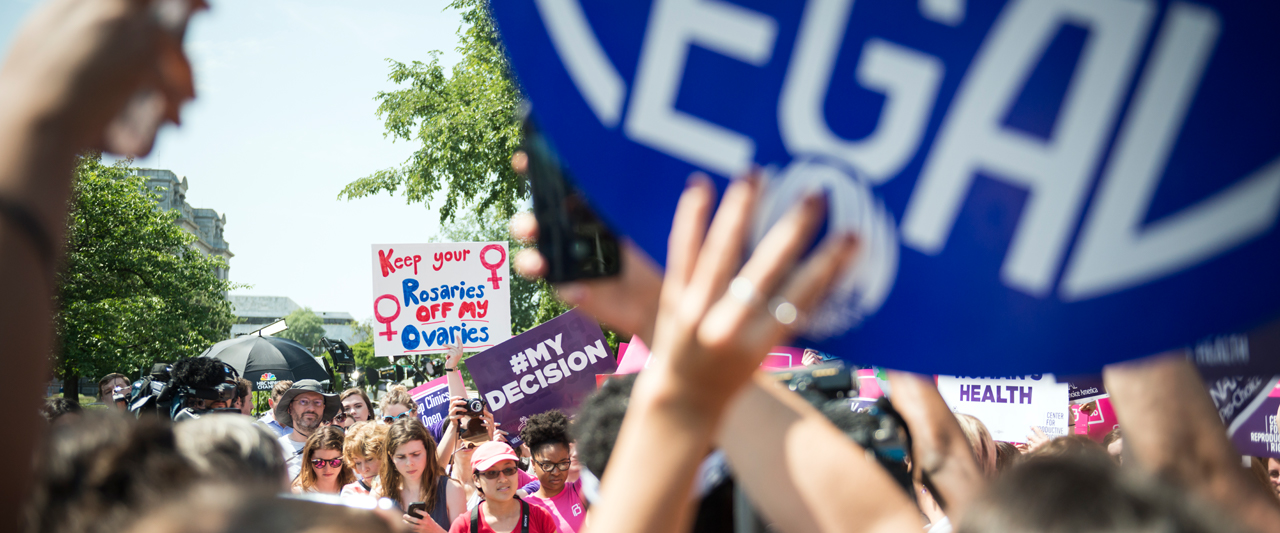We are winning in the war for abortion access and rights
By Anu Kumar, Ipas President and CEO
 In 1994, I attended the International Conference on Population and Development and was shocked to find that the right to safe, legal abortion was still being debated. Really? I thought Roe v. Wade had settled that issue in 1973.
In 1994, I attended the International Conference on Population and Development and was shocked to find that the right to safe, legal abortion was still being debated. Really? I thought Roe v. Wade had settled that issue in 1973.
Fast forward to 2019, and the right to safe, legal abortion is still not settled. In fact, it’s being stripped away one state law or regulation at a time, with Roe under attack like never before. The truth is, access to abortion is and always has been precarious. In the United States and around the world, poor and minority people, young people and those living in rural areas are most affected by lack of access to abortion care and discriminatory enforcement of criminal abortion laws.
If you’re like me, you find all of this depressing and infuriating. But I urge you, don’t give up or give in to the current backlash against abortion rights. Keep driving people to and from clinics, keep escorting them to the clinic doors, keep donating to abortion funds, keep organizing—in short, keep fighting. Why? Because you are part of a global movement with activists and advocates all around the world.
Back at that conference in 1994, I was young and impatient. Now, I’m older, and though I’m still impatient, I find myself looking at social change with a different lens. Instead of thinking only in election cycles, court cases or legislation, I think we should measure progress with a longer view—perhaps using a generational scale. Look at the movement for women’s suffrage in the United States. It began in 1848 in upstate New York, but women did not win the right to vote until more than 70 years later. It was a battle that brought together women of differing races, religions and socioeconomic status. It was a battle that landed many of them in jail. And they had to work through serious differences within their movement over whether, for instance, the vote should be extended to white women only. But they persisted, and the 19th amendment was finally ratified in August of 1920.
If we look at change from this perspective, there is no denying that abortion rights are advancing. Since 1994, more than 30 countries have liberalized their abortion laws. With safe, legal abortion more accessible, the number of deaths from unsafe abortion each year has gone from 70,000 to 44,000 over the past decade. In the U.S., studies in the years after Roe showed a decline in hospitalizations from complications of unsafe abortion. It is a well-documented fact that safe, legal abortion saves women’s lives. After abortion laws were liberalized in Romania, South Africa and Bangladesh, for example, there was a reduction in the number of deaths related to unsafe abortion.
So we’re making progress, but why isn’t it faster?
You may be feeling that change is really, really slow—and that, in the United States, we are actually going backwards. We certainly seem to be in a one-step-backward situation right now. But keep in mind, the change we’re seeking involves women’s rights, women’s bodies and control of our bodies and this is deeply threatening to the social order. Abortion is the tip of the spear into the heart of patriarchy, which is precisely why it draws so much opposition. There are many dimensions to abortion—political, medical and legal, for instance—but, at its core, what we’re after is a fundamental change in the way men and women have interacted and behaved for thousands of years. And that’s not going to be quick or easy.
Here’s the thing: We actually are making progress. There are signs, for example, that religion is diminishing as an oppositional force. A Pew Research survey of members of 30 religious groups in the United States found that members of a majority of those groups (18 of 30) said that abortion should be legal in all or most cases. And while the Catholic Church is still a major anti-abortion force, a recent study in Mexico, which has the second-largest population of Catholics in the world, found that a majority of Mexican Catholics support abortion in some circumstances. Another encouraging sign is that, in the United States, trends show that younger people are more supportive of abortion rights. They are more likely to say, for example, that health insurance should cover abortion services and that services should be available in local communities.
The long arc of history
In the battle for reproductive justice, we have to play the long game. As Americans watch abortion access shrink under the Trump administration, we must remember that the United States is an aberration in the global march for women’s rights, including sexual and reproductive rights. And it is the global movement—from Ireland, which voted to end its near-total ban on abortion, and Northern Ireland, which on a single day ended its bans against abortion and gay marriage, to countries such as the Democratic Republic of the Congo, where historically restrictive abortion rights have been expanded—that can provide American activists with ideas and inspiration. Just look at what’s happening in Nepal, where abortion was illegal until 2002 and hundreds of women died from unsafe abortions each year. Today, women and girls in Nepal have the right to access safe, legal abortion free of charge at public health facilities. In Rwanda, the government recently expanded the legal grounds for abortion and also pardoned 367 women and girls who had been jailed for abortion.
Eventually, I firmly believe, the United States will catch up to countries around the world (several states are doing it right now). But whether the news is good or bad, as activists for social change, we cannot be attached to immediate outcomes. That will only lead to an emotional roller coaster of highs and lows. We must simply strive for change—day in and day out—doing our part with strength and conviction and with the knowledge that our struggle is just and right. It will continue when we leave the stage and other actors will come to play our parts. We may be lucky and our time will overlap with progressive change. More likely, there will be both progress and regression in our lifetime. But my guiding light is this: The wins for abortion rights have altered the lives of millions of people for the better. And the wins have, slowly but surely, been outnumbering the losses. I’m not done fighting yet, and I hope you’re not either.
For more information, contact [email protected]


